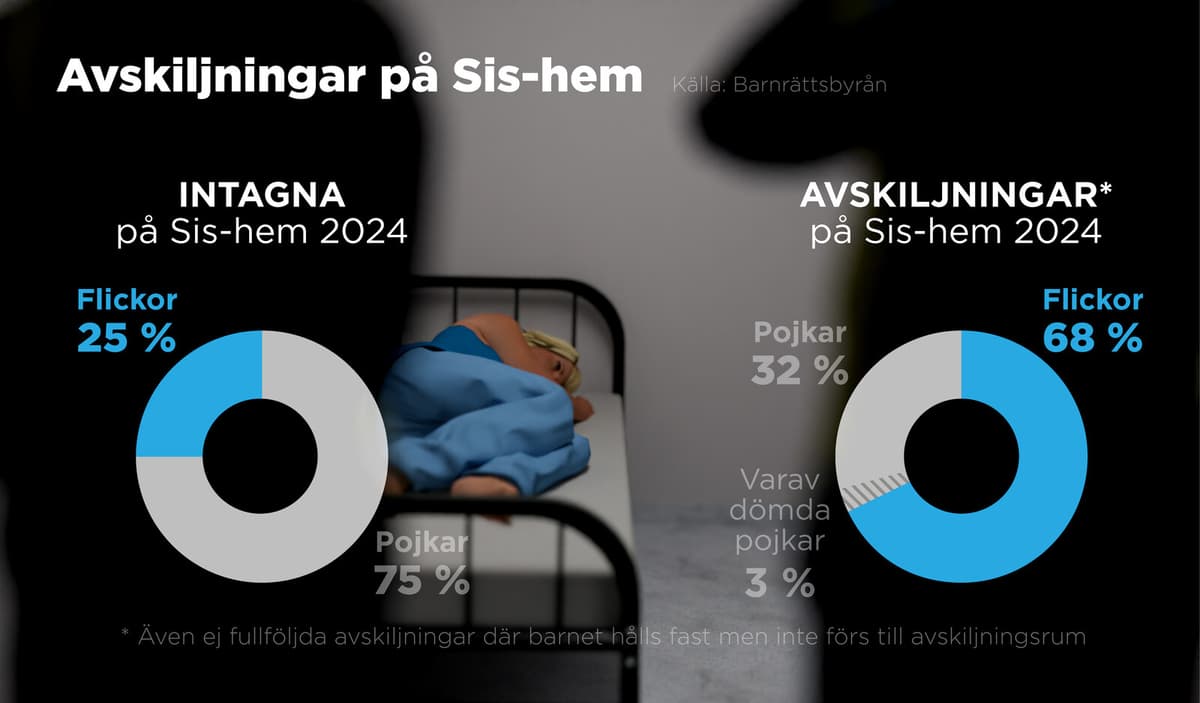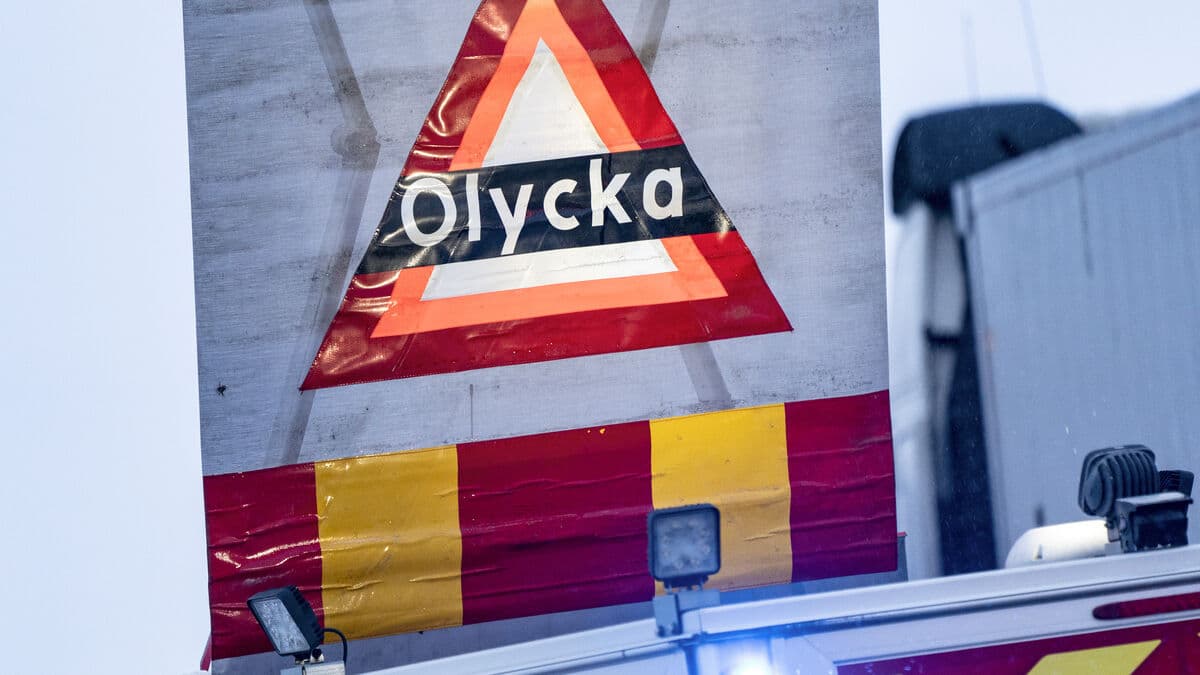There is no indication that the conditions within Sis will improve, notes the Children's Rights Agency. Staff violence against children and the number of isolations continued to increase in 2024.
The worst affected are young girls.
Girls at intermediate and upper secondary school level are subjected to ten times as many physical interventions by staff as boys in upper secondary school age. Meanwhile, almost no girls are cared for at Sis because they have committed crimes.
A hypothesis could be that staff choose not to physically restrain a large boy. But a 13-year-old girl, you can take on, says Jessica Söderstrand.
She has worked for ten years at the Sis home Långanäs in Eksjö – first as a treatment assistant and later as a unit manager.
Söderstrand quit last year. This after she herself sounded the alarm about violence and abuse at Långanäs – with "total ostracism" from the management, she says.
The view of the girls is more corrective. You have more room for the boys, that it's not so dangerous if they get a little rough. But if a girl does it, it becomes like a correctional institution.
"Extremely serious reports"
Jessica Söderstrand testifies that the environment began to harden around 2020 – with increasingly less room for social work and more coercion and silence culture.
This is an authority that works very much with power and instead of meeting and responding to needs, she says.
The great focus on gang criminal boys goes at the expense of the girls, she believes.
The girls are left in the shadow, even though they may be the most exposed to abuse.
Stina Gustavsson was previously a development manager within Sis. Five years ago, she investigated the operation at the Sis home Björkbacken in Gothenburg, where staff were repeatedly reported for violence, abuse, and sexual abuse.
A weekly basis, extremely serious reports came in, terrible things happened all the time. It was impossible to guarantee safety for a single day for these girls, she says.
Macho culture
Gustavsson believes that it is not individual employees who are the problem. Rather, it is a pattern that permeates the authority and a strong macho culture in the organization.
It continues year after year, regardless of whether you replace people or not.
The big problem, according to Gustavsson, is that Sis simultaneously has to care for several different groups – such as seriously gang criminal, children with neuropsychiatric and self-harming girls.
This is a mission that cannot be solved. And you have to stop trying.
The National Board of Institutions (Sis) is responsible for the state's child and youth care.
Sis operates 21 special youth homes and has approximately 4,000 permanent employees.
The majority of children and young people cared for there are according to the Act (LVU), which is used when the young person or guardians do not consent to care. Young people who have committed serious crimes and are serving their sentences in closed youth care are placed in special youth homes.
One of Sis' powers is "isolation", which means that staff, according to law, have the right to lock children in a special room or isolation cell if they have "ongoing violent behavior".
Ivo has criticized Sis for using isolation without legal support, and the entire procedure has been criticized by several children's rights organizations.
The government has announced that Sis will be shut down and reformed into a completely new authority, more focused on care and treatment, since young offenders from 2026 will be placed in youth prisons instead.
Source: Sis, Ministry of Health and Social Affairs
Is an organization that works for children's rights – including by offering vulnerable children and young people social and legal support and practical help in their contact with authorities.
Started in 2011 as a project within the framework of Ersta diakoni and is since a separate organization, driven as an ideal association.
The Children's Rights Agency






